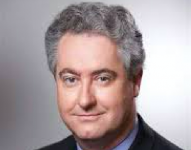‘Game Changing’ Medicinal Cannabis Laws: An Interview with Labor MLC Adam Searle

An Australian politician has finally drafted a law which seeks to provide access to medicinal cannabis and is broad enough to get real product into the hands of patients who desperately need it.
Leader of the NSW Opposition in the Legislative Council Adam Searle introduced the Medicinal Cannabis (Compassionate Access) Bill 2018 into the state’s upper house on February 15. And medicinal cannabis advocates are calling it a game changer.
A cumbersome system
Currently, only around 350 patients nationwide have been able to secure legal cannabis medicine prescriptions. In NSW, there’s only about 50 patients who can legally access medicinal cannabis.
This is despite the Turnbull government passing legislation two years ago this month that was supposed to establish a legal framework to allow for the cultivation and manufacture of cannabis for medicinal purposes.
A total of 30 cannabis-related licences have been issued under the scheme, and yet there’s still no legal domestic product available in Australia. Which means the few patients who’ve managed to wade through the bureaucratic red tape are forced to buy exorbitantly priced imported products.
Meanwhile there’s an estimated 100,000 Australian patients who are forced to buy their medicine on the black market. And while their being criminalised in the process, they’re also concerned that when the legal product is available, it will be of lesser quality.
Accessing real product
The Searle Bill allows an individual with a terminal or serious medical condition to register as a medicinal cannabis user. This allows them to bypass the requirement of obtaining a doctor’s prescription to buy cannabis. And it also protects them from the threat of arrest and criminal prosecution for doing so.
The legislation allows a registered patient to be in the possession of 15 grams of cannabis leaf, or 1 gram of cannabis oil, or 2.5 grams of cannabis resin. And while some medicinal cannabis advocates have questioned the quantities, there are provisions in the bill that would allow for larger amounts.
If passed, the bill would also establish a lawful supply chain of medicinal cannabis. And the terms of the bill are flexible enough to allow for the production of small-scale botanical products, as well as larger-scale manufacturing.
What patients need
Long-time cannabis activist Loren Paul Wiener said the bill changes the game as “it legitimises the need for real cannabis for medical use, it protects patients and caregivers, and it covers serious illnesses.”
Mr Wiener was a keen supporter a similar piece of legislation introduced into the NSW lower house by Labor leader Luke Foley in February last year. And like many others who are keen to see Australia move ahead on this issue, Weiner has his fingers crossed that the new bill will garner more support.
Mr Searle was a member of the Legislative Council Inquiry into the use of cannabis for medicinal purposes, which delivered its report in May 2013. And much of what’s set out in the current legislation was unanimously recommended by the inquiry.
Sydney Criminal Lawyers® spoke with NSW Labor MLC Adam Searle about how the bill decriminalises the use and possession of cannabis for medical purposes, the reasons why the current federal system isn’t working, and his personal understanding of why cannabis medicine is so beneficial.
Firstly, Mr Searle, how would you say your access bill differs from other pieces of medicinal cannabis legislation that have come before it in this country?
This bill is different because it doesn’t rest on doctor’s prescribing. The federal access scheme is cumbersome, bureaucratic, and ultimately, very difficult for people to navigate. Often, because you have to deal with state and federal bureaucracies.
For example, depending on whether the product you want to access is schedule 4 or schedule 8, in some cases you also need to obtain state health department approval.
They have their own processes and protocol, which were set up really to deal with potentially dangerous pharmaceutical products, and it’s being applied to medicinal cannabis. So, you get a very difficult process to navigate.
This is a much simpler regime, where if you have a terminal illness, or another serious condition, all you need is a doctor to certify that’s what you’ve got, and then that provides the gateway to having criminal sanctions for acquiring and using cannabis for medicinal purposes lifted.
It’s the simplicity and the lack of having to get a doctor to prescribe it.
The other thing is that the medical profession is still playing catch up with cannabis, because it’s been illegal for a long time. There hasn’t been the same medical studies for cannabis, as there has been for other medicine, because of that illegal status and the social stigma.
Even doctors who are sympathetic think, “Do I know enough about it, and your condition, to actually prescribe it?”
Whereas, when they’re prescribing another certified medicine, they know that it’s been clinically tested, trialled and approved. It’s not that big a leap to say, “Based on your illness and your symptoms, I can easily prescribe this for you.”
But, with medicinal cannabis it’s got THC and cannabinoids. What a person is treating may require different components and different strengths. A lot of GPs don’t know that sort of thing. And they’re not as confident about prescribing it.
That’s one of the big barriers: requiring a doctor’s prescription. It makes common sense that if you need a medicine, you need a doctor’s prescription. But, because of that history, it’s a key barrier at present, as is navigating not one, but often two, medical bureaucracies.
This legislation that we’ve got tries to simplify that and bypass it, making it a much easier proposition.
The legislation allows a registered user or carer to be in possession of 15 grams of cannabis, or its equivalent in oil or resin.
Is this bill setting up a system for the provision of raw cannabis or botanical products for patients, rather than setting up a supply line solely for highly manufactured and refined medical products?
The answer is that it allows for both. When you look at the definition of the bill, it describes cannabis as raw leaf, resin, an admixture, or an extract. It does contemplate the possibility of pharmaceuticals, but only if they are substantially derived from cannabis.
What we don’t want is people buying and being sold a pharmaceutical product being marketed as medicinal cannabis if it’s entirely unrelated to cannabis.
The bill is very strong on its focus on the origins of the medicinal cannabis being a natural product.
This bill seeks to establish “a lawful supply chain of medicinal cannabis” that can be accessed by registered users.
The provisions set out in the bill are very flexible. Does it allow for smaller producers to register for a licence and produce more artisanal products?
Yes. In theory it would facilitate small-scale production, or large-scale commercial production. That’s why it’s so flexible.
In Victoria, announcements were made earlier this year that they’re significantly ramping up their cannabis production with an objective of meeting 50 percent of Australia’s demand by 2028. So, it’s a major new industry. Why should NSW miss out?
Could these provisions allow for registered users to apply for licences that authorise them to grow their own at home?
Legally they could, depending on how they’re applied.
You mentioned that registered users will have criminal sanctions lifted. Does this mean that these patients wouldn’t be prosecuted for accessing black market products?
No. And that’s the key thing. There was some criticism of this originally. But, what we are recognising is that because of the lack of any effective legal access, people who are needing treatment today are being forced onto the black market.
Now, that’s undesirable, because you’re getting product of variable quality with different properties. And they may not be the properties that you need to treat what you have. Really, you don’t know what you are getting. It’s a bit of pot luck, when you buy from a black market supplier.
But, we recognise that people are forced into this by circumstances, and so we don’t want the sufferers or their carers, who are often the acquirers, to be criminalised.
But, that doesn’t lift the criminal sanctions from the dealer, which I understand is not an ideal solution. It is what I would call a pragmatic compromise pending the lawful supply chain being established.
The Turnbull government passed legislation in February 2016 to establish a system of legal cannabis medicines. But, there’s still no domestic product available. And many patient advocacy groups question the type of product that will eventually be available.
How would you say the system your bill establishes differs from the federal framework?
The framework we would contemplate is more flexible, as it takes in large-scale commercial production, as well as small-scale production.
Obviously, in the state legislation, while it doesn’t preclude pharmaceutical products being available under the regime, in terms of cultivation, there’s a focus on the plant.
I know a lot of people who seek to use medicinal cannabis do want it in the form of plant, resin, a tincture, or an oil. Something that is relatively unprocessed. Not everybody wants a spray or a tablet.
It’s partly a question of what is more effective. And what is more accessible? Some people have a preference for one form over another. They should all effectively be available.
The Therapeutic Goods Administration Special Access Scheme allows medicinal cannabis patients to access imported products. In your second reading speech on the bill, you mentioned that that this system is failing in NSW.
Can you explain why that is?
You get different reports. The bureaucracy says it’s quite easy and simple to use. Whereas, patients and doctors say it is very cumbersome, time consuming and difficult.
I’m not a doctor, so I don’t really know. All I know is that I keep getting report after report from doctors and patients saying that the scheme is inflexible.
But, when you get through all of that approval process, you often then need approval from the health department in NSW. And sometimes that’s withheld.
And even where you can get all of the approvals, accessing the product is quite expensive. Sometimes up to $20,000 a year to access some of these products that are derived from cannabis. That’s a very expensive undertaking. That is way beyond the means of most people.
So, the first barrier is requiring a doctor to prescribe. The second barrier is the bureaucratic process often involving both levels of government. And then, the third barrier is cost.
The upshot of all of that is, very few people are getting access, even though there is a massive and unmet need.
I’m not apportioning blame. I’m just saying it ain’t working. And I think the model we’ve come up with would work better.
I understand that you’ve personally witnessed the benefits that medicinal cannabis can bring to a person suffering severe illness.
Can I ask how this medicine has touched your life?
My father died from cancer. And I saw that medicinal cannabis alleviated a number of his symptoms: his pain, it helped to stimulate appetite after chemotherapy, and it provided many beneficial effects for him that were not available through other forms of more traditional pharmaceutical medicine.
There were other forms of pain relief available. But, they compromised quality of life, whereas the medicinal cannabis didn’t. It actually made quality of life more accessible.
So, I’ve seen that myself firsthand. And I’ve seen that with other people I’ve known, who’ve suffered from terminal illnesses, or other chronic conditions.
I’m not a doctor, and I wouldn’t claim to be in anyway a specialist in my understanding. But, what I do know is that for many people this can work. And we should make it available.
And lastly, Mr Searle, your private member’s bill follows on another similar piece of legislation you drafted last year, which failed to pass in the NSW lower house.
Are the attitudes of NSW parliamentarians changing in regard to medicinal cannabis? And do you expect this bill to have a more favourable reception this year?
I hope it has a more favourable reception. I think the views of the members of parliament are overwhelmingly in favour of taking these steps. What’s holding it back is the current cabinet, and the health bureaucracy.
Obviously, the health bureaucracy is very conservative and very much in the tradition of western medicine. It’s really approaching this as a new form of medicine or pharmaceutical. And they’re taking that approach to things, which is very slow.
And that’s the approach being taken by the government. Of course, the government controls their political party, and it makes the decisions about which way members of parliament in the Liberal and National parties would vote.
If members were allowed a free vote, I believe they would vote overwhelming in favour of these measures, or measures very similar. There’s a lot of room for having a debate about the precise details, models, methods and processes.
I don’t pretend that what I propose is the only way. And there may be better ways. But, what I’m saying is, left to a free vote members of parliament would overwhelming embrace this approach.
The question is, whether or not the current government of NSW will come onboard, or whether they will keep taking the current, very conservative approach.
Not that I’m proposing a radical approach – far from it. There would be many people in the medicinal cannabis space, who would view my proposals as very conservative as well.
The report of the upper house committee in 2013 was unanimous. And it was unanimous across five very different political parties right across the political spectrum.
There was a lot of goodwill then. And there remains a lot of goodwill now.
The issue is can that goodwill be allowed to come through.







